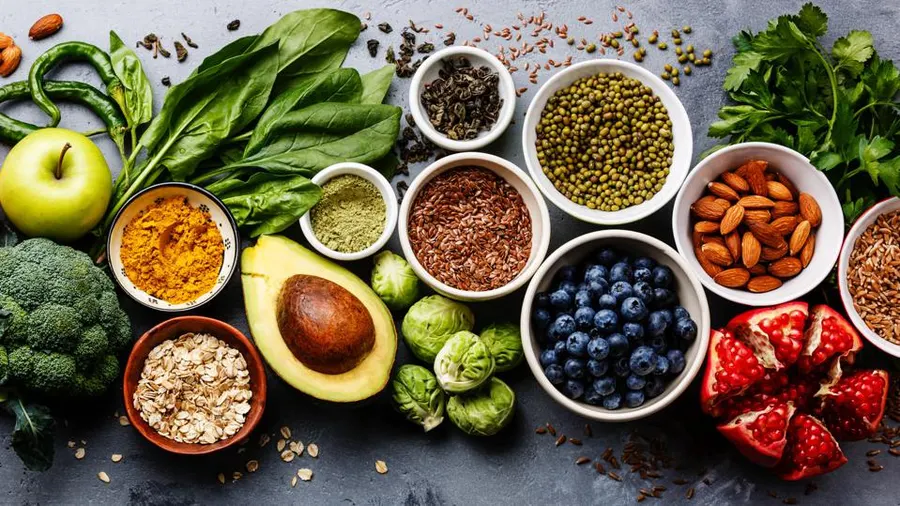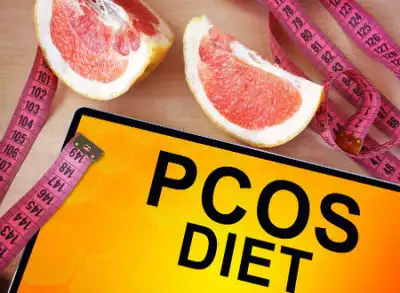Importance of PCOD & PCOS diet plan
An endocrine condition that impacts one in ten women of age to become pregnant is called polycystic ovarian syndrome, or PCOS. Fertility looks, and general health may all be impacted. Making healthy dietary adjustments is an excellent place to start if you have PCOS symptoms or have been diagnosed with the disease. Here's what you should know about using nutrition to treat PCOS.
PCOS Explained by Dt. Rukhsana Azhar, a PCOD & PCOS dietitian in Bangalore
An imbalance in hormones known as PCOS can impact ovulation, periods, and the ability to conceive. PCOS is closely associated with metabolic illnesses that can lead to weight accumulation and insulin resistance in addition to these issues.
PCOS symptoms, which can include thinning hair, irregular periods, weight gain, oily skin, and even depression, usually appear gradually. It's crucial to discuss your symptoms with your healthcare provider if you think you might have PCOS, especially if you've been having problems getting pregnant.
How does PCOS and diet interact? Or What is the diet plan for PCOD & PCOS?
Insulin levels are frequently found to be higher in PCOS patients than in healthy people. One hormone that the pancreas produces is insulin. It facilitates glucose, or sugar, being converted by body cells into energy.
The level of blood sugar can increase if there is insufficient insulin produced. This can also occur in cases of insulin resistance, a condition in which your body is unable to properly use the insulin that is produced.
In an attempt to maintain normal blood sugar levels, your body may try to produce high amounts of insulin in case you have resistance to insulin. Your ovaries may produce more testosterone and other androgens if you have too much insulin in your body.
A greater body mass index can also be a contributing factor to insulin resistance. Weight loss can be impeded by insulin resistance, which is why PCOS patients frequently struggle with this problem.
Refined carbohydrate diets, such as those high in sugar and starch, can make it harder to control insulin resistance and, consequently, weight loss.
How is treating PCOS?
The three main therapies for PCOS are a healthy diet plan, regular exercise, and weight control in Bangalore. Treatment can help avoid the development of long-term health issues in addition to reducing uncomfortable symptoms. Experts disagree on the ideal diet for PCOS, but they do agree that maintaining an overall healthy diet is essential to controlling symptoms. These nine actions will help you maintain optimal nutrition.
Consider minimally processed and fresh
Select a range of freshly harvested and minimally processed (also known as "clean") fruits, vegetables, dairy and milk products, and foods high in lean protein, such as nuts and seeds. Power bowls, which combine colour, crunch, and protein to boost energy, are a fantastic and delectable way to eat healthily.
Go with Whole Grain
Choose whole grains when adding them to your meals! Minimally processed whole grains include products made entirely of whole wheat, barley, oats, brown rice, cracked wheat (bulgur), low-fat popcorn, and corn. You can also try less common whole grains like teff, quinoa, amaranth, buckwheat, millet, kamut, and spelled.
Hydrate Frequently
Your body needs to be properly hydrated. Water continues to be the best option, even though there are many different beverages to choose from. Need to make a change? Try adding a squeeze of lime or lemon, a dash of your favourite herb, like mint, or grab carbonated water.
A few women with PCOS diet benefit from milk as well, but it's crucial to stay away from sugar-filled drinks like juices, energy beverages, and soda. Diet sodas are lower in calories and sugar, but they've also been linked to other health issues.
Consume Smaller Portions More Often
Try eating just a single meal or munch every 3 to 5 hours instead of three large meals a day. Try to fit in a tiny serving of vegetables or lean protein with each. Snacks that are excellent include:
· One ounce of snap peas and reduced-fat cheese
· One ounce of chicken without skin and bones served with a light garden salad dressing
· Grape tomatoes and a quarter cup of cottage cheese are all that's needed
· A low no-sugar yogurt container and one teaspoon of almonds
· One hard-boiled egg, hummus, and carrots
Steer clear of trans and hydrogenated fats
Heart disease risk increases with a large consumption of trans and hydrogenated fats. Make sure you choose healthfully by reading the ingredient lists and labels on food packaging.
Two times a week, eat fatty fish
Omega-3 fats are abundant in fatty fish, including sardines, herring, and salmon. Try to get your fill of eight to twelve oz. of fatty fish two times per week. Not much of a fish fan? A great way to obtain your omega-3s from plants is to add one tablespoon of ground (not whole) flaxseed to your daily smoothie or yogurt.
According to a PCOD & PCOS dietician, put fibre first
Consume a diet rich in fruits, vegetables, and whole grains to reach your daily goal of at least 25 grammes of fibre. Check the nutrition labels on the foods you choose or quickly search the internet to get a ballpark estimate of the grammes of fibre they contain. Determining whether you've consumed enough of the nutritious stuff will become simpler the more you observe and learn about your food!
Limit your sodium intake
Aim to limit your daily sodium consumption to 2,300 mg or less. Limit eating out and refined foods in containers and boxes whenever you can to aid in achieving this goal. Be sure to read labels such as "no salt added," "unsalted," or "reduced sodium" when selecting processed foods. It's critical to keep in mind that eating less salt does not need to mean bland food! Spices such as flavoured vinegar, fresh lemon, onion, and garlic can be added while cooking to enhance the flavour of your food.
Put Soy Protein First
Given its potential to enhance cardiovascular and metabolic health, soy protein may be advantageous for people with PCOS. Attempt to consume 25 grammes of soy protein per day through food or drink. Soy products like tofu, edamame, tempeh, soy butter, soy nuts, and soy milk are excellent providers of soy protein.
We are aware that modifying your diet in an attempt to increase fertility can be daunting. However, we will assist you in creating a treatment plan that meets your needs and are here to assist you as you manage your symptoms.
Other lifestyle adjustments to think about if you have PCOS
A PCOD & PCOS Dietitian Rukhsana Azhar suggests a few lifestyle modifications can lessen the symptoms of PCOS.
Exercise and regular physical activity are among these adjustments. Both can aid in lowering insulin resistance when combined with a reduced consumption of refined carbohydrates. It is recommended to exercise for at least one hundred and fifty minutes a week, according to many experts.
Losing weight can also be facilitated by regular exercise, a low-sugar diet, and an anti-inflammatory lifestyle. Losing weight may improve ovulation in some people.
Stress can be brought on by PCOS symptoms. Techniques for reducing stress can be helpful because they help you link with your body and calm your mind. These consist of meditation and yoga.






